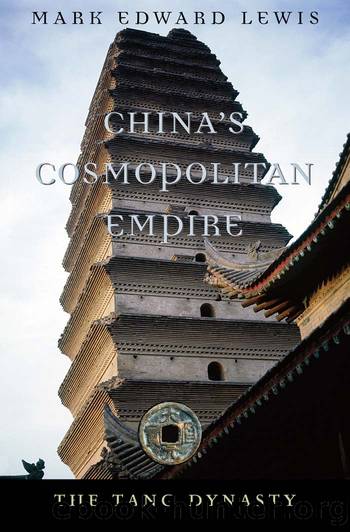China's Cosmopolitan Empire by Mark Edward Lewis

Author:Mark Edward Lewis [Lewis, Mark Edward]
Language: eng
Format: epub
ISBN: 9780674064010
Publisher: Harvard University Press
In another passage, people in hell ask Mulian to tell the living that elaborate coffins and expensive funerals with music and song cannot mitigate the suffering of the dead, which can only be alleviated through charity to the Buddhist order. When Mulian finally meets his mother in hell, she tells him that one of her crimes was to engage in ancestor worshipâto âslaughter pigs and goats on a grand scale to sacrifice to ghosts and spirits.â While such arguments never led to widespread abandonment of the traditional ancestral cult, they did encourage permanent modifications in the rituals for securing the safe transition of the dead to a new state of existence.33 While many of the ideas underlying these cosmological and ritual systems derived from Buddhism, by the late Tang and the Song they began to merge into a Chinese religion that flourished outside institutional Buddhism, Daoism, and Confucianism.
One of the clearest examples of Buddhismâs influence was the elaboration between the seventh and tenth centuries of a punitive underworld bureaucracy and a set of rituals to cope with it. Like the invention of purgatory in the West, this development offered an entirely new means by which people could assist their deceased kin. This new purgatory, best described in the tenth-century The Scripture on the Ten Kings, consisted of a series of ten courts through which the deceased must pass. In each court (depicted on the model of Tang courts of law) the ruling king acted as a judge who examined records of the personâs life and, if necessary, imposed tortures to force an exhaustive confession of sins (Fig. 22). After leaving the courts, the deceased would be assigned to his or her state of rebirth in the next life, with good deeds leading to a higher rebirth and bad ones to a lower (Fig. 23).34
In association with the Ten Kings purgatorial system were rituals by which the living could assist the passage of the self or of kin through the realms of torture and judgment. Elements of these rituals had appeared in texts from the Northern and Southern Dynasties, which established the idea that the purgatorial rituals should be performed at seven-day intervals, up to forty-nine days, to coincide with the deceasedâs passage through the courts. The Scripture on the Ten Kings, however, contains far more elaborate descriptions of the sufferings that await the deceased if their surviving kin fail to act on their behalf:
Download
This site does not store any files on its server. We only index and link to content provided by other sites. Please contact the content providers to delete copyright contents if any and email us, we'll remove relevant links or contents immediately.
| Confucianism | Feng Shui |
| I Ching | Jainism |
| Karma | Shintoism |
| Sikhism | Tao Te Ching |
| Taoism | Tibetan Book of the Dead |
| Zoroastrianism |
The Tao of Physics by Fritjof Capra(2266)
Human Design by Chetan Parkyn(2068)
The Diamond Cutter by Geshe Michael Roach(2058)
Feng Shui by Stephen Skinner(1936)
The Alchemy of Sexual Energy by Mantak Chia(1848)
Tao Te Ching by Lao Tzu(1833)
365 Tao: Daily Meditations by Ming-Dao Deng(1616)
Tao Tantric Arts for Women by Minke de Vos(1575)
Sun Tzu's The Art of War by Giles Lionel Minford John Tzu Sun(1531)
Sidney Sheldon (1982) Master Of The Game by Sidney Sheldon(1512)
Buddhism 101 by Arnie Kozak(1507)
Karma-Yoga and Bhakti-Yoga by Swami Vivekananda(1487)
The Analects of Confucius by Burton Watson(1423)
The Art of War Other Classics of Eastern Philosophy by Sun Tzu Lao-Tzu Confucius Mencius(1410)
Tao te ching by Lao Tzu(1356)
The Way of Chuang Tzu by Thomas Merton(1346)
The New Bohemians Handbook by Justina Blakeney(1340)
The Sayings Of by Confucius(1303)
Bless This House by Donna Henes(1266)
